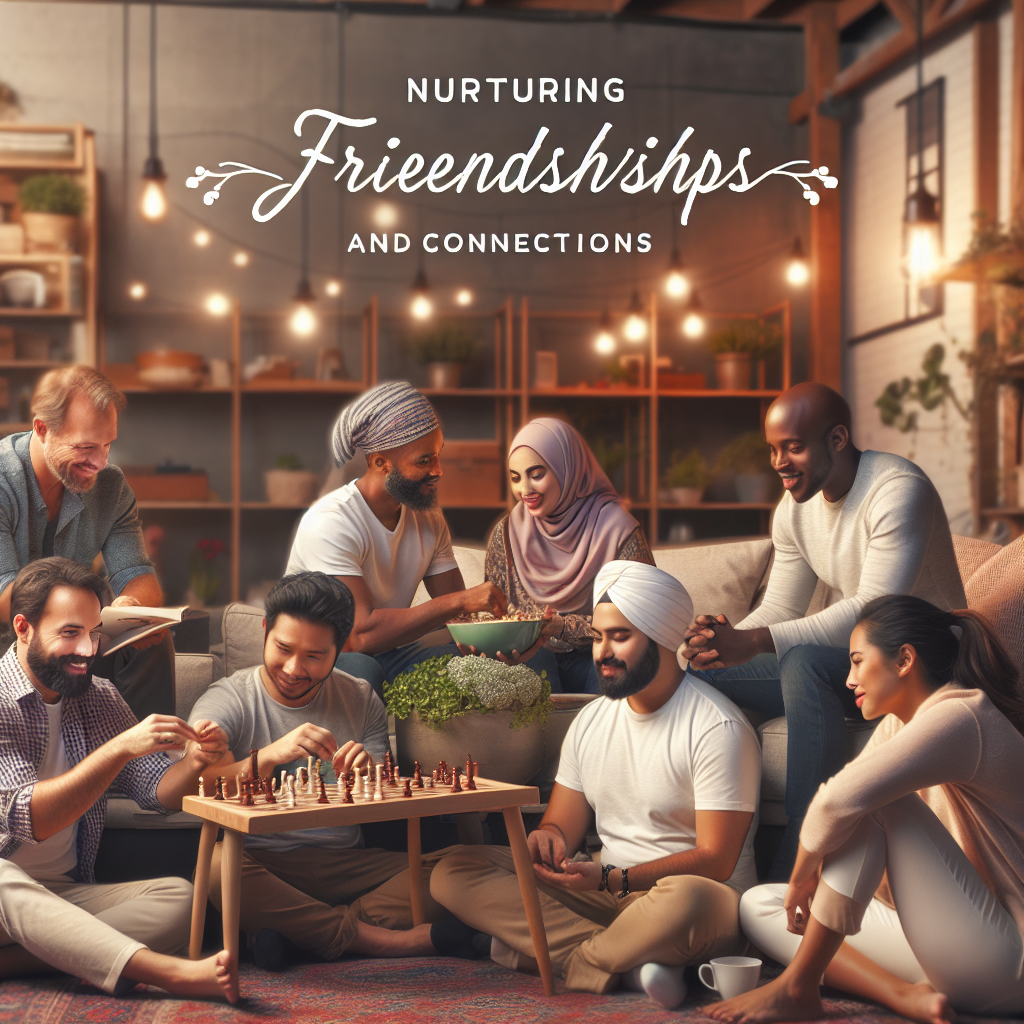Friendship and connections play a crucial role in our lives, providing us with support, laughter, and companionship. Nurturing these relationships is essential for our mental, emotional, and even physical well-being. In today’s fast-paced world, where technology often replaces face-to-face interactions, it can be challenging to establish and maintain meaningful friendships. However, with a little effort and intentionality, you can create a positive support system that enriches your life and helps you navigate its ups and downs.
Here are some tips for nurturing friendships and connections:
1. Prioritize quality over quantity:
It’s better to have a few close friends who truly care about you and support you than a large network of shallow connections. Focus on building deep, meaningful relationships with people who share your values and interests.
2. Make time for your friends:
In our busy lives, it’s easy to let friendships fall by the wayside. Schedule regular get-togethers with your friends, whether it’s a weekly coffee date or a monthly dinner. Make an effort to stay in touch through phone calls, texts, or video chats, even if you can’t see each other in person.
3. Be a good listener:
Part of being a good friend is being there for others when they need to talk. Practice active listening by giving your full attention, asking questions, and offering support and empathy. Show that you care by remembering important details about their lives and checking in regularly.
4. Show appreciation:
Let your friends know how much they mean to you by expressing gratitude for their support and love. Send a thoughtful text, write a heartfelt note, or give them a small gift to show your appreciation. Small gestures can go a long way in strengthening your friendships.
5. Be vulnerable:
True friendships are built on trust and honesty. Share your joys and struggles with your friends, and allow them to do the same. Opening up about your feelings and experiences can deepen your connection and create a sense of intimacy.
6. Be reliable and trustworthy:
Show up for your friends when they need you, whether it’s for a listening ear during a tough time or a helping hand with a project. Be someone they can count on, and they will be more likely to reciprocate when you need support.
7. Join groups or clubs:
Find opportunities to meet new people who share your interests by joining clubs, classes, or community groups. Shared experiences can create a bond that strengthens friendships and provides a sense of belonging.
8. Be open-minded:
Friendship can come in unexpected packages, so be open to befriending people who are different from you in age, background, or interests. Embrace diversity and learn from others’ perspectives, which can enrich your life and broaden your horizons.
9. Set boundaries:
While it’s important to be there for your friends, it’s also crucial to prioritize self-care and set boundaries when needed. Communicate your needs and limits clearly, and respect those of others. Healthy friendships are based on mutual respect and understanding.
10. Seek professional help if needed:
If you struggle to form or maintain friendships due to social anxiety, depression, or other mental health challenges, consider seeking professional help. A therapist or counselor can provide support and guidance to help you build healthier relationships.
FAQs:
Q: How do I make new friends as an adult?
A: Making new friends as an adult can be challenging, but it’s not impossible. Consider joining a hobby group, taking a class, volunteering, or attending social events to meet new people. Be open, friendly, and genuine, and don’t be afraid to initiate conversations and take the first step in forming connections.
Q: What should I do if I feel like I don’t have any close friends?
A: If you feel lonely or disconnected, reach out to people you know and try to deepen existing relationships. Consider joining a support group, seeking therapy, or volunteering to meet new people and build connections. Remember that friendships take time to develop, so be patient and persistent in your efforts.
Q: How do I navigate conflicts in my friendships?
A: Conflict is a natural part of any relationship, but it’s important to address it openly and respectfully. Communicate your feelings and concerns calmly, listen to the other person’s perspective, and work together to find a resolution. Remember that healthy relationships involve compromise and understanding.
Q: What should I do if a friend is not supportive or toxic?
A: It’s essential to prioritize your well-being and set boundaries with friends who are not supportive or toxic. Communicate your concerns and feelings honestly, and consider distancing yourself or ending the friendship if necessary. Surround yourself with positive, uplifting people who uplift you and respect your boundaries.
In conclusion, nurturing friendships and connections is a vital aspect of leading a fulfilling and meaningful life. By prioritizing quality over quantity, making time for your friends, being a good listener, showing appreciation, and being vulnerable, you can create a positive support system that enriches your life and provides you with the love and support you need. Remember to be reliable, open-minded, and set boundaries when necessary, and seek professional help if needed. By following these tips and being intentional in your relationships, you can cultivate strong, lasting friendships that bring joy, laughter, and support into your life.




Leave A Comment